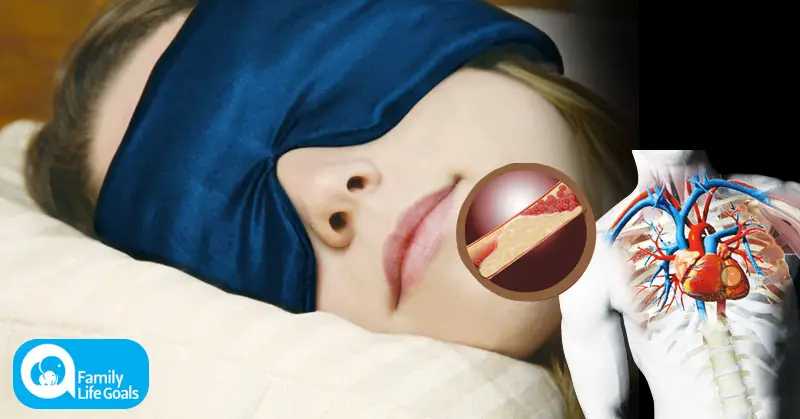When it comes to sleep, quality and quantity are key. We all know the importance of sleep to overall health, wellbeing and longevity, but it turns out that our body’s natural circadian rhythms could be the secret culprit to a fatal health epidemic: heart disease.
Our bodies’ natural sleep-wake cycles aren’t often studied in relation to cardiovascular issues, but a wide range of scientific research proves that this relationship is stronger and deeper than we ever imagined.
Understanding The Importance of Circadian Rhythms
Circadian rhythms are the all-encompassing physical, mental and behavioural changes that occur throughout a 24-hour cycle. The study of circadian rhythms, known as chronobiology, revolves around your body’s response to light and darkness in a given environment. The brain’s “master clock” coordinates all the body clocks, like the biological clock and circadian rhythms, through a group of nerve cells called the suprachiasmatic, or SCN.
Circadian rhythms, produced by over 20,000 nerve cells, are both genetic and environmental. Environmental factors, such as light, influence circadian rhythms, turning on or off genetic genes that control the body’s internal clock. These rhythms are responsible for a slew of bodily functions, like sleep-wake cycles, hormone release, and body temperature. While circadian rhythms are often exclusively associated with sleep patterns and disorders, like insomnia, these delicate rhythms have the power to manifests themselves through other seemingly unrelated issues, like:
- Obesity
- Diabetes
- Depression
- Bipolar disorder
- Seasonal affective disorder
- Heart disease
The Link Between Circadian Rhythms and Heart Disease
Unknown to many, when circadian rhythms are disrupted, the body’s risk of cardiovascular disease, both heart attacks and strokes, increases exponentially. Here’s how:
- Heart attacks are two to three times more likely to happen in the morning compared to at night. Sudden cardiac deaths follow a circadian pattern due to irregular heart rhythms during the morning and throughout day.
- Circadian clock genes are expressed in the hearts of humans. According to study, when scientists removed the circadian clock genes from heart cells of mice, they had abnormal electrocardiography in their hearts and were more susceptible to abnormal heart rhythms. These same mice were also unable to properly metabolize cholesterol and were more likely to develop atherosclerosis.
- The circadian clock in heart cells have to communicate with the central circadian clock in order to work correctly. When normal day-night cycles are interrupted, the communication between your central circadian clock and the one in your heart cells is interrupted. This leads to a number of chain reactions, one of which is cardiovascular disease.
- Another study conducted on mice and heart attacks, found that disrupting a mice’s circadian rhythms after a heart attack significantly reduced the body’s ability of the heart to heal. Conversely, when circadian rhythms were stable and normal, the heart’s structures and function was better preserved through the healing process.
- Circadian rhythms are responsible for normal blood sugar variations throughout the day. Studies find that when circadian rhythms are disrupted in humans are exposed to a 28-hour day over the span of eight days, the subjects developed significantly higher blood pressure and other related heart problems.
Ensuring your Circadian Rhythm Stays Intact
If your circadian rhythms are off their usual, level beat, don’t fret. While out of sync circadian rhythms can be highly compromising to your health, thankfully, they can easily be brought back to a normal wavelength by committing yourself to the following tips and tricks!
Avoid or Limit Coffee and Caffeine
Your morning cup of coffee may be shifting your circadian clock. According to recent research, caffeine inserts a delay into the 24-hour metabolic rhythm that keeps your body’s master clock on track. Caffeine’s wakefulness-promoting and self-disrupting effects, especially later in the day delays melatonin rhythms that lengthen your circadian rhythm. Not only will tis affect how well you fall asleep, but also how good you feel the next morning.
If you absolutely cannot live without your cup of joe, it’s important that your drink a modest amount, first thing in the morning. For those looking to kick their coffee crutch, try opting for lower caffeine-dosed teas or opting for entire lifestyle change that doesn’t rely on caffeine for energy – like ample vegetables and exercise.
No Screens After 9pm

Blue light emitted by smartphones, tablets and laptops impact the quantity and quality of the sleep you get. Since the dawn of human existence, darkness is a natural, biological cue to our bodies that it’s time for sleep. By altering and manipulating this natural cue with artificial lighting, we are delaying melatonin production and circadian rhythms.
To avoid and limit this disruption, try avoiding artificial blue light before bed – ideally 9pm. This simple shift will signal your body to wind down and prepare itself for a deep, restorative sleep.
Maximize Melatonin Production with an Eye Mask
Melatonin is a powerful hormone with powerful broad-spectrum antioxidant properties. What does it mean? The release of melatonin acts as a mop to swipe clean chemical accumulation that occur throughout the day. To maximize the quality and quantity of melatonin products: the darker the environment, the better.
On top of avoiding bright light before bed, try wearing an eye mask when it’s time for sleep. This routine will not only signal your body to begin winding down, but also boost melatonin production before drifting off and throughout your sleep cycle!
Get on a Consistent Sleep Schedule
Wake up at the same time, every day. While you can’t always control when you fall asleep, you can decide when to start your day. Instilling a regular sleep routine sets the tone for your body for the entire day – and as a byproduct with consistent use, will encourage your body to create melatonin at the same time every night.
Sources:
https://www.ncbi.nlm.nih.gov/pubmed/27340272
https://www.wholehealthinsider.com/newsletter/circadian-rhythm-affect-heart-disease-weight-gain/
https://www.nigms.nih.gov/Education/Pages/Factsheet_CircadianRhythms.aspx
https://www.ncbi.nlm.nih.gov/pubmed/3791599
https://www.ncbi.nlm.nih.gov/pubmed/21641838
https://www.ncbi.nlm.nih.gov/pubmed/25883568
https://www.ncbi.nlm.nih.gov/pubmed/?term=Martino+TA%2C+et+al.+Hypertension.+2007+May%3B49(5)%3A1104-13.
https://www.ncbi.nlm.nih.gov/pubmed/24687134
https://www.ncbi.nlm.nih.gov/pubmed/19255424
https://www.ncbi.nlm.nih.gov/pubmed/20854139
https://stm.sciencemag.org/content/7/305/305ra146
https://www.caffeineinformer.com/caffeine-and-sleep
https://www.digitaltrends.com/mobile/does-blue-light-ruin-sleep-we-ask-an-expert/

